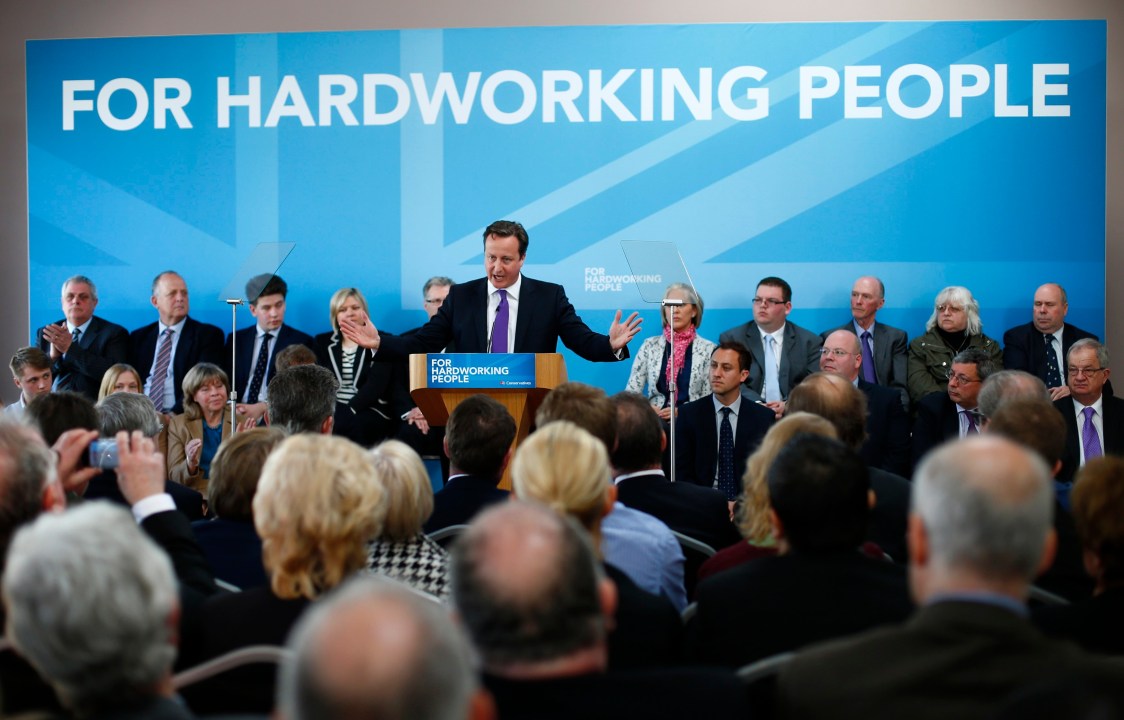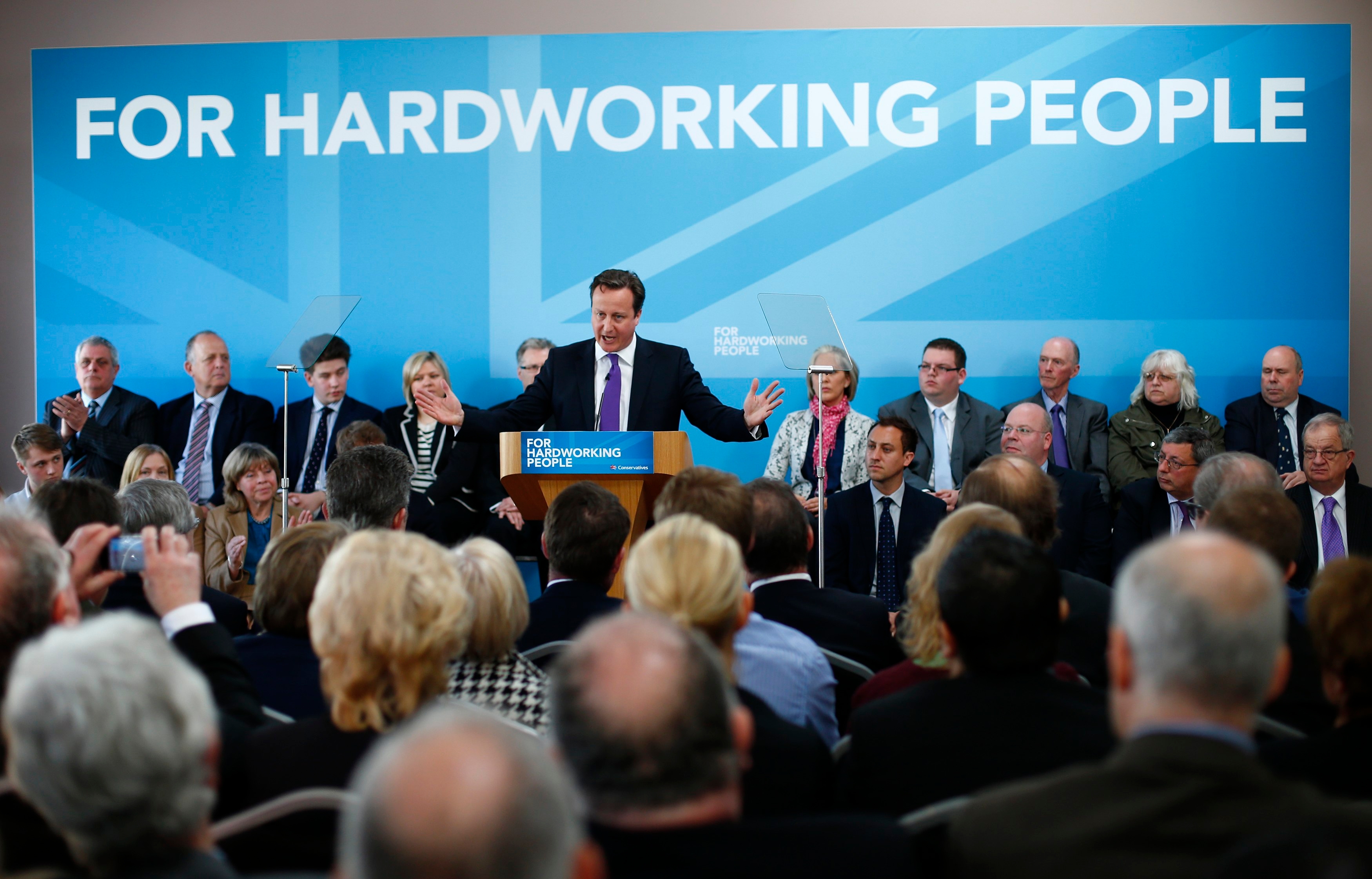Clearly it is not a good idea for the Prime Minister’s chums to call members of the Conservative party “swivel-eyed loons“. No, not even at a “private dinner party”. I suspect that the identity of the “senior Conservative” who is “socially close” to David Cameron will be out by close of play Sunday and that he – it seems most unlikely it is a she – will, as James says, be removed from whatever position of responsibility he currently enjoys. I also suspect most voters will have no idea who this man is even once his name is revealed. That doesn’t matter.
Adrian Hilton wrote a good piece at ConservativeHome last year detailing his experiences with falling Tory membership in Beaconsfield. But what is the point of being a member of the Conservative party when, in general, you are offered responsibility without power? As Hilton put it:
[T]here was a time when being a member of the Conservative Party was an active democratic pursuit – we could freely select parliamentary candidates, propose motions for conference and even participate in debates from the floor. It was a festival of genuine political participation: we didn’t all agree, and neither did we have to pretend to: democracy is messy. The “broad church” was open to many shades of opinion, and some of those “shrill” nonconformists even managed to be selected for parliamentary seats. One even became Party Leader and Prime Minister.
Sadly, all of these processes are now controlled by the centralised oligarchy, and members are left with the façade of engagement. Candidates are imposed, selections are rigged, and the annual conference is no longer a vibrant celebration of democracy with halls packed to standing: it is a technocratic rally to demagoguery, and a poorly-attended one at that (at least by Party members). No contentious “big issues” are discussed or debated and no corporate wisdom is gleaned from the membership: their function is simply to applaud when prompted and cheer when instructed. It is little more than window-dressing and sophistry for mass media consumption.
Of course we understand why the leadership likes it this way. It causes less trouble. But it’s a very good way of killing a movement. Treat people like fools and incompetents and soon incompetents and fools will be the only people left to join your party. Engage with them and you have a chance of reversing that decline. Better still, you might consider trusting them, even if only occasionally. Instead the Tory party prefers a top-down, centralising philosophy that is, in many respects, the kind of structure that Conservatives exist to oppose. Trusting people means tolerating their capacity for making mistakes sometimes (and learning from those errors). But since Central Office is hardly a blunder-free zone how much worse would it really be if local associations – the little platoons! – had more influence on their party?
As Paul Goodman asks, if the party is dying whose fault is that? It does not have to be that way. Some associations have seen their membership rise. Meanwhile, north of the border the SNP now claim 25,000 members. That’s comparable (if accurate!) to a UK-wide party having a membership of something close to 300,000 members. Or roughly twice what the Tories currently claim.
Now the SNP membership make mistakes too (they chucked my friend Andrew Wilson out of parliament, for instance) but they are also given some opportunity to influence party policy. The SNP’s conversion to supporting NATO membership was backed by the party conference after a spirited and close-fought debate (granted the leadership prevailed largely on grounds of expediency). The point is not the result, in this instance, but the process. The members were (for once) involved. There was something old-fashioned and decent about this.
Of course it helps that the SNP is also a movement with a clearly defined cause. Nevertheless it also demonstrates that it remains possible to recruit members and activists. But you have to use them as something more than stuffing-envelopes and door-knocking fodder.
Be that as it may and no matter how ill-chosen his words, Cameron’s chum is not necessarily wrong about how constituency associations are pushing MPs to the right. James Kirkup quotes one MP:
Some party insiders fear that a shrinking membership is putting MPs under increased pressure to reject some Government policies. One Conservative MP privately confirmed that he would vote against gay marriage under pressure from local members. He said: “I don’t have a problem with gay marriage because the state has no business in our private lives. But I’ll vote against it because if I don’t I’ll lose half my association.”
He’s not alone. Gay marriage has cost the party members in (I think) every constituency in Britain. That does not make it a bad policy but it demonstrates, again, that it is better to win the argument than to impose something of this sort upon the party and expect everyone to fall into line because the thought of Prime Minister Miliband is enough to trump all other concerns. There comes a point at which people simply say Sod it, I’ve had enough.
The bigger problem still, however, is that the Tory party increasingly does not look very much like Britain or, especially, England. Worse still, it frequently – and despite all the talk of modernisation – does not seem comfortable with modern England. This is, for sure, in part a feature of the conservative temperament but it does make it harder for the party to recruit new members and harder for it to retain existing members. It is caught in a cleft stick.
This is the worst of all possibilities. Old members are dying or leaving and there are no new members. On the politics of gay marriage the party membership appears to be on the wrong side of history. Cameron has made a fine conservative case for gay marriage but he’s neither convinced his party nor persuaded the public that he’s in favour of gay marriage for the right reasons. Too many people think it’s just a stunt to demonstrate that the party is pretending to change without really doing so. Again, the worst of all outcomes: the people who dislike the policy will never forgive Cameron and the people who support it are unlikely to give him much credit for it. This is the pity of Cameron’s predicament.
There are times when running against your own base makes sense. It rarely hurt Tony Blair (though it probably did hurt the Labour party) but it’s not a good idea to reinforce, even in private, the electorate’s suspicion that your party is, on the whole, populated by rum coves at best and maniacs at worst.








Comments